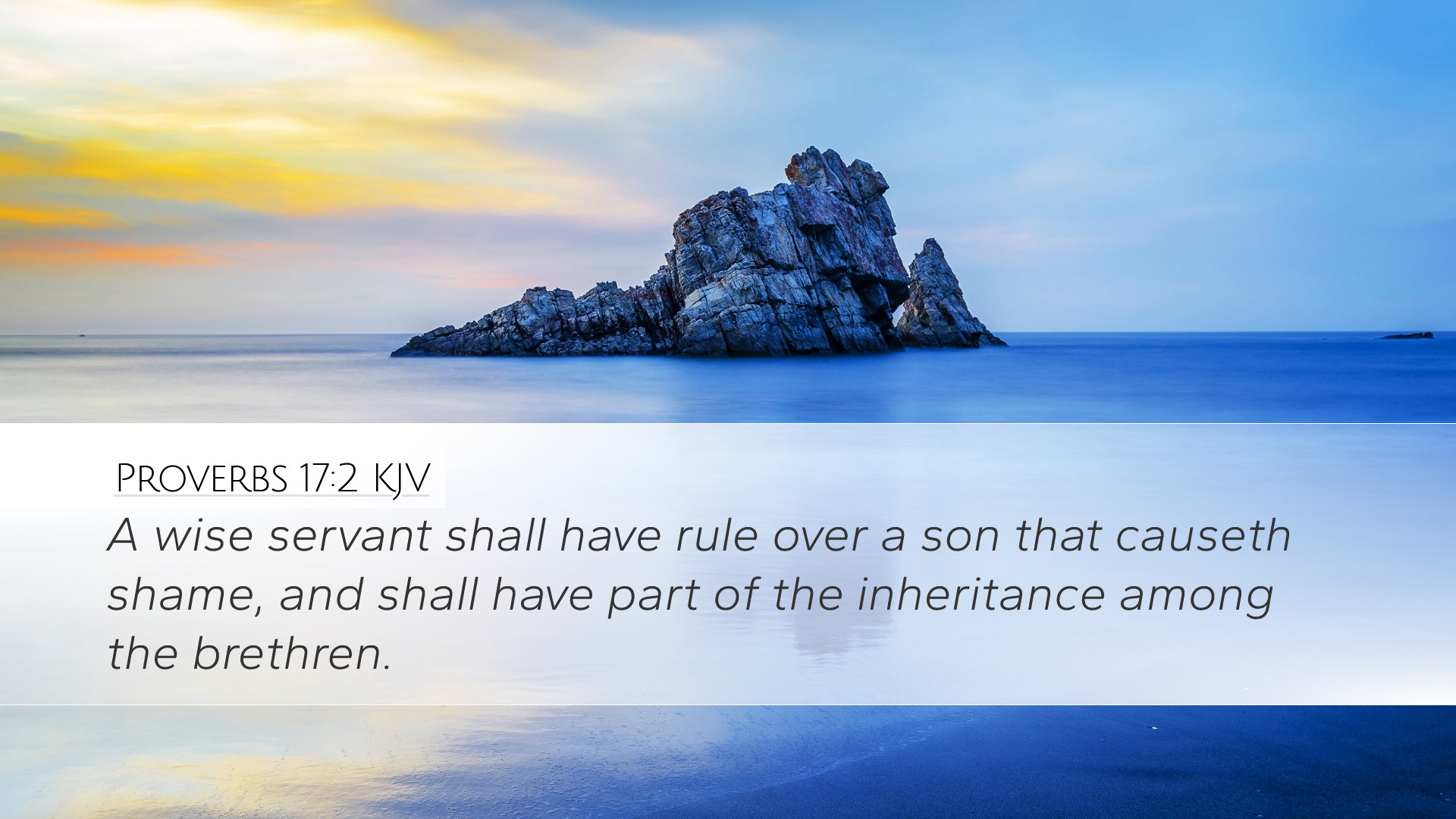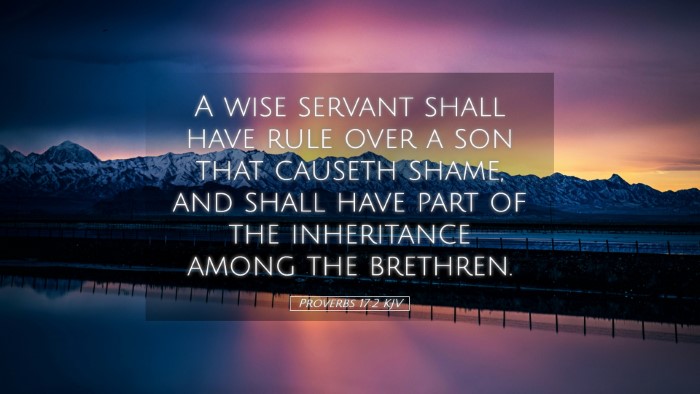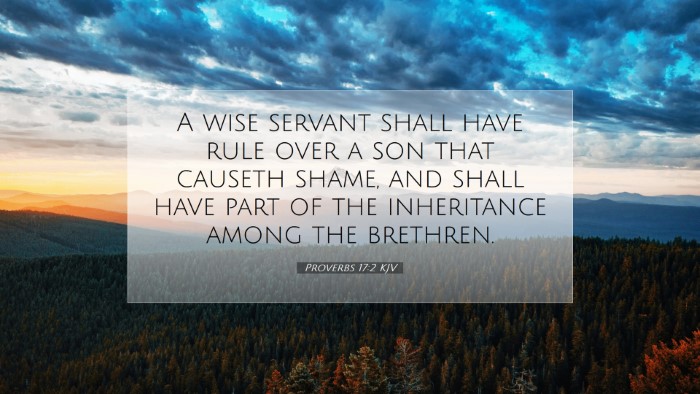Proverbs 17:2 Commentary
Verse: "A wise servant will rule over a son who causes shame, and will share in the inheritance among the brothers."
Introduction
The Book of Proverbs is a treasury of wisdom, providing insights into a life of prudence and righteousness. Proverbs 17:2 encapsulates the principle that wisdom and character can lead to greater honor and responsibility than mere birthright. This commentary seeks to explore the rich meanings embedded in this verse, drawing on established public domain commentaries from noted theologians.
Matthew Henry's Commentary
Matthew Henry emphasizes the contrast presented in this verse between a wise servant and a foolish son. He notes:
- The wisdom of the servant signifies a person who acts with intelligence and skill, which can elevate him above those born into privilege.
- In contrast, a son who causes shame suggests an heir who squanders his chances and acts disgracefully, thus forfeiting the benefits of his heritage.
- This teaches that moral and intellectual competence can lead to greater esteem than lineage alone.
Henry suggests that the wise servant’s rulership implies that he has earned not only respect but also a place of authority among the family members. He asserts that this principle is often borne out in societies where meritocracy prevails.
Albert Barnes' Commentary
Albert Barnes adds layers of interpretation surrounding the societal implications found in Proverbs 17:2. He interprets the verse as follows:
- He points out that a wise servant signifies those who are enterprising and loyal in their duties, proving their worth through their contributions and reliability.
- The shameful son, in many respects, represents the danger of entitlement, where individuals fail to take responsibility for their actions.
- Barnes argues that this proverb serves as a reminder that wisdom and diligence create openings for advancement, even amidst traditional social structures.
He concludes that the passage reflects the broader biblical theme that God honors diligence and wisdom, rewarding those who seek to serve faithfully.
Adam Clarke's Commentary
Adam Clarke delves into the Hebrew wording and cultural context of Proverbs 17:2, offering insights that enhance understanding:
- Clarke notes that the phrase “will share in the inheritance” has profound implications regarding God's justice and favor.
- He remarks on the cultural precedence where servants could indeed rise in status, particularly in ancient Near Eastern societies, if they exhibit fidelity and discernment.
- Clarke points out that this dynamic illustrates God's sovereignty and wisdom in subverting traditional expectations; where a lowly servant becomes esteemed while a foolish heir faces disgrace.
Clarke affirms that the principles in this proverb transcend cultural boundaries, offering timeless wisdom applicable in any era. The message warns against complacency and encourages the pursuit of virtue among God’s children.
Theological Implications
Proverbs 17:2 presents profound theological insights relevant to faith communities:
- God’s Value System: This verse signifies that divine approval hinges not on heritage but on living wisely and righteously, inviting believers to cultivate these traits.
- Servanthood and Leadership: Reflecting the values Jesus exemplified, effective leadership is often rooted in humble service and faithfulness rather than mere authoritative power.
- Inclusion and Belonging: The promise of shared inheritance implies that God's family is not limited by biological ties but rather extends to the wise and faithful servants of Christ, enriching the church's unity.
Practical Applications
This verse not only affirms the value of wisdom but also has several practical applications for the faithful:
- Encouragement for Servants: Those in subordinate roles should be encouraged that their efforts are valuable and can lead to recognition and reward.
- Accountability: Individuals must evaluate their lives against the standard of wisdom and consider the implications of their actions, particularly those in leadership roles.
- Creating Opportunities: The community should provide avenues for those who may not have traditional advantages to demonstrate their talents and wisdom.
Conclusion
Proverbs 17:2 delivers a powerful statement about the nature of wisdom and the sovereignty of God in determining worth. It challenges conventional norms about inheritance and success, illuminating the path for believers to pursue wisdom diligently. Through the insights of Henry, Barnes, and Clarke, this verse becomes a call to evaluate our priorities and perspectives, ultimately redirecting them towards a life that honors God and serves humanity faithfully.


